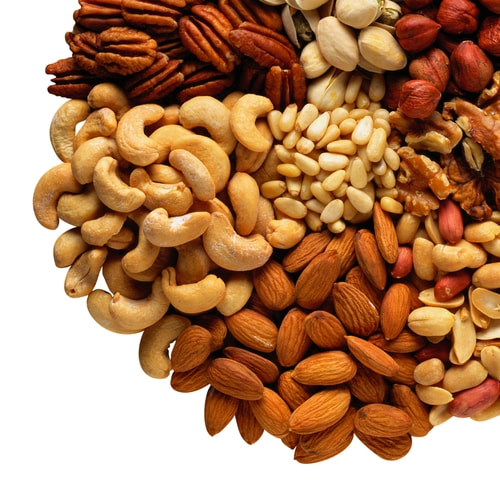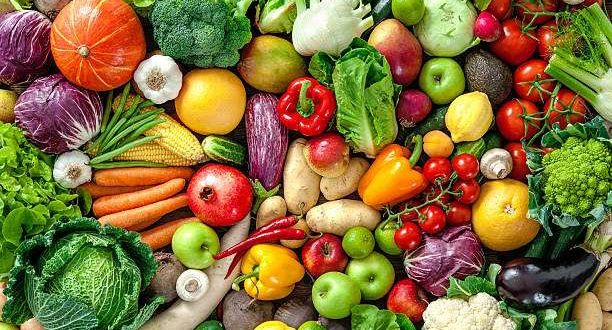Article by Dr. Tim Leeming. Exercise Nutritionist, Chiropractor.
| What’s up with nutritional guidelines for athletes these days? The advice that our national organisations and regional centres continue to push? I’ve got to say, they just don’t seem to have changed much since I was having that stuff fed to me 15 years ago! This is certainly a polarising topic. A quick look on any social media post in recent times will indicate just how ‘knickers in a knot’ some people will get about nutrition. Athletes, in particular, seem to get extra riled up about it all. The reason I make these comments is to counter with the notion that I’m going to try very hard to address a few pertinent points associated with food, nutrition and athletes in as balanced and diplomatic manner as I can. |
Kudos to the marketing gurus, because they’ve got the masses hooked. For much of my teenage years and early twenties, I too was hooked. I thought that any nutritional boost to performance I was going to get would come from the meals I ate the night before and the hour before racing. I thought it had to be specially formulated for performance, typically indicated by a shiny label and packaging. How wrong I was.
Now, one of the first things I will teach anyone I work with is that the food you eat day to day, on a consistent basis over months and years, is immeasurably more important for performance than the miraculous pasta bake you whip up for pre-race day, or the glorious carb gel you gulp back 45 minutes before hitting the start line. It’s no different to your training. The tapering speed work you do in the final 7-10 days before an event adds the minutia of improvement to your performance – maybe the final three percent of your outcome. It is the weeks and months of volume that you previously underwent that truly determines how well you’re going to do. You can’t skip all of that and then just blast some fartlek and compete with your fingers crossed. It doesn’t work. Neither does “pre-race carb loading” if you don’t eat well for the rest of your training campaign (or life, for that matter).
So what does “eating well” entail? Well, just as important as living the above idea about eating well all of the time, I prioritise the consumption of food. Actual real food. That means vegetables, fruit, nuts, seeds, oils, fish and pasture-raised meat. The less human interference with the things you put in your mouth, the better chance you have of being healthy. The healthier you are, the better you’ll perform. On the contrary, if the majority of what you eat comes in a package, with a long ingredients list full of words you can’t pronounce, let alone understand, then I’m afraid you’re not eating food. Nor are you promoting health or high-performance.
And this is exactly what worries me about our enduringly unwavering “sports nutrition” guidelines. They are overly worried about what you eat in the 48-hour window either side of racing, and too concerned with the things you consume being things and not food.
Surely, as a nation, as a population, as a race we have plunged far enough into the grips of high-morbidity chronic health issues that both our general and exercise nutrition guidelines can begin to shift towards a lesser processed and more natural way of eating. Frustratingly, it would appear that nothing has changed… yet.
The current advice being given to athletes – including our kids – involve consuming low-fat dairy, supermarket muesli bars, protein powders and fruit juice (to name a few). Ironically, the guidelines also mention keeping processed/refined sugars to a minimum. If only the advisors had read an ingredients list on the back of most muesli bar boxes or fruit juice bottles.
Advice given directs that “Fad diets” should be avoided, with examples such as Paleo and Intermittent Fasting (IF) listed. Personally, I chuckle at the idea of calling these two in particular “fad diets”, given they are based upon the way humans have eaten over many thousands of years of evolution. Hardly a fad, and it doesn’t take much searching or reading to see the immense benefits many people – including athletes – are now seeing in their overall health as a result of following guidelines set out by lifestyles like Paleo. The reality is that most mainstream-trained nutritionists just aren’t taught about the ins and outs of these methods, so aren’t equipped to advise on them without further reading and education (self-administered or otherwise). Sadly, instead of suggesting that the audience should seek appropriate help with Paleo or IF, the advice is that they’re just bad and should be avoided.
There has been the suggestion that it is dangerous for someone with such influence as a Nationally Certified Nutritionist to stand in front of a group of children and tell them that fad diets are the way to go. I completely agree! In 2007, data was published indicating that children were 242 times more likely to have an eating disorder than type II diabetes. Clearly, for modern children being exposed to social media, online and television marketing, other kids at school and perhaps a nutritionist delivering a talk at their sports club, navigating the world of food is harder work than algebra! It’s a sorry status quo.
Telling these same children that the guidelines presented by diets like Paleo or even low-carb high-fat (LCHF) should be avoided is downright ignorant, in my opinion. Even more so when you are promoting low-fat dairy for its energy density and bone building capacity. Please, keep in mind that FAT is the most energy-dense nutrient and that Vitamin D (the oh-so-important micronutrient needed to help calcium to build strong bones) is a FAT-SOLUBLE vitamin! But we’re meant to choose the heavily-processed lower-fat milk for our energy and bones? And, don’t forget now, the association between dairy intake and bone strength is not only weak, but complex and multifactorial. You’re better off minimising your red meat intake.
So why do our trained nutritionists continue to push contradicting and health-adverse advice on our children and athletes alike? Because it’s “evidence-based”? Because we’re already such a healthy and high-performing population? Because it’s what we’ve always done? Because we don’t want to confuse people with updated advice for fear of poor outcomes?
With the current state of health – in our children and our athletes – I’m going to go crazily out on a limb and suggest it’d be a great idea to have a slight change of trajectory. Perhaps listening to Paleo Pete, or Nutritionist Cyndi O’Meara, or Professor Tim Noakes, or any of the other fantastic proponents of wholefood eating wouldn’t be such a bad idea for our powers that be? Or is it simply too hard to admit that we’ve got it wrong?
It’s not all bad news. We are actually extremely fortunate in New Zealand to have recently had Professor Grant Schofield appointed as our first Chief Education Health and Nutrition Advisor. The “Fat Professor” has a big job ahead of him, but I think that any change from the status quo is going to be a good change.
I promised I would do my best to address this topic in as diplomatic a manner as possible, and I know I have drifted somewhat at times. This is an area of discussion that I’m deeply passionate about, which can make it very frustrating at certain moments. Eating food, real food, should be a simple matter. Industry, marketing, media and cultural shift have all made it a far more convoluted problem in recent decades. If ever in doubt, just listen to your body. Does what you’re eating keep you full and performing well for a long time? Does it not make you even hungrier, more tired or unwell? If so, then you’re probably on the right track! If not, you need to make a change.
Article by Dr. Tim Leeming. Exercise Nutritionist, Chiropractor.
References
C. Kresser, “Unconventional Medicine”, 2017
J. Robison, “Helping with Harming: Kids, Eating, Weight & Health”, Absolute Advantage 7, 2007
https://www.whitelies.org.uk/health-nutrition/osteoporosis
https://www.foodmatters.com/article/the-truth-about-calcium-and-osteoporosis
https://www.beehive.govt.nz/release/new-appointment-support-physical-activity-and-nutrition-schools





